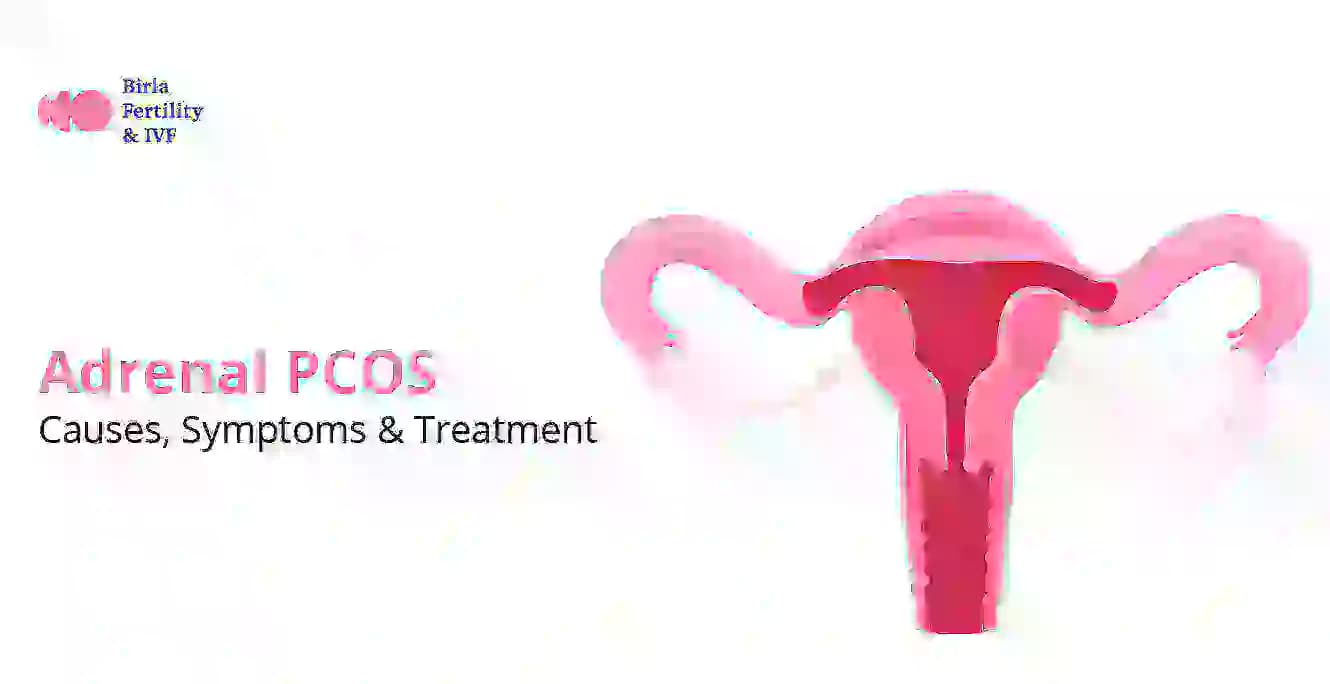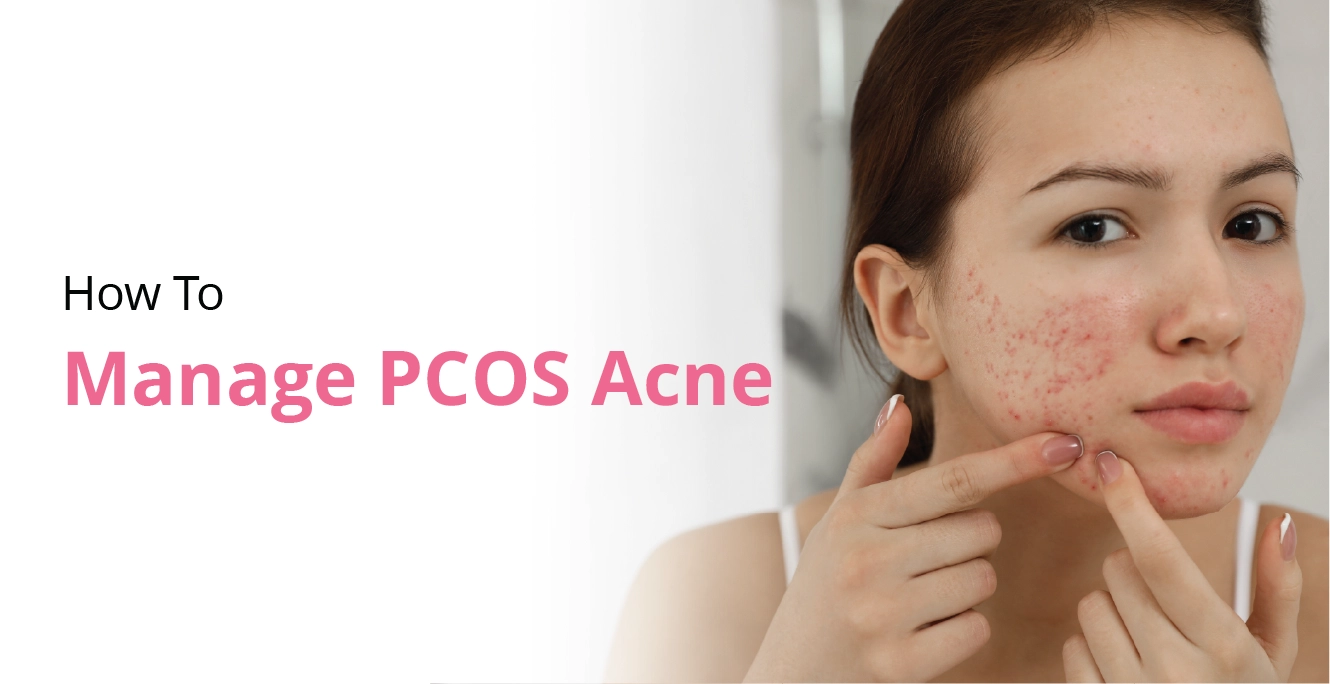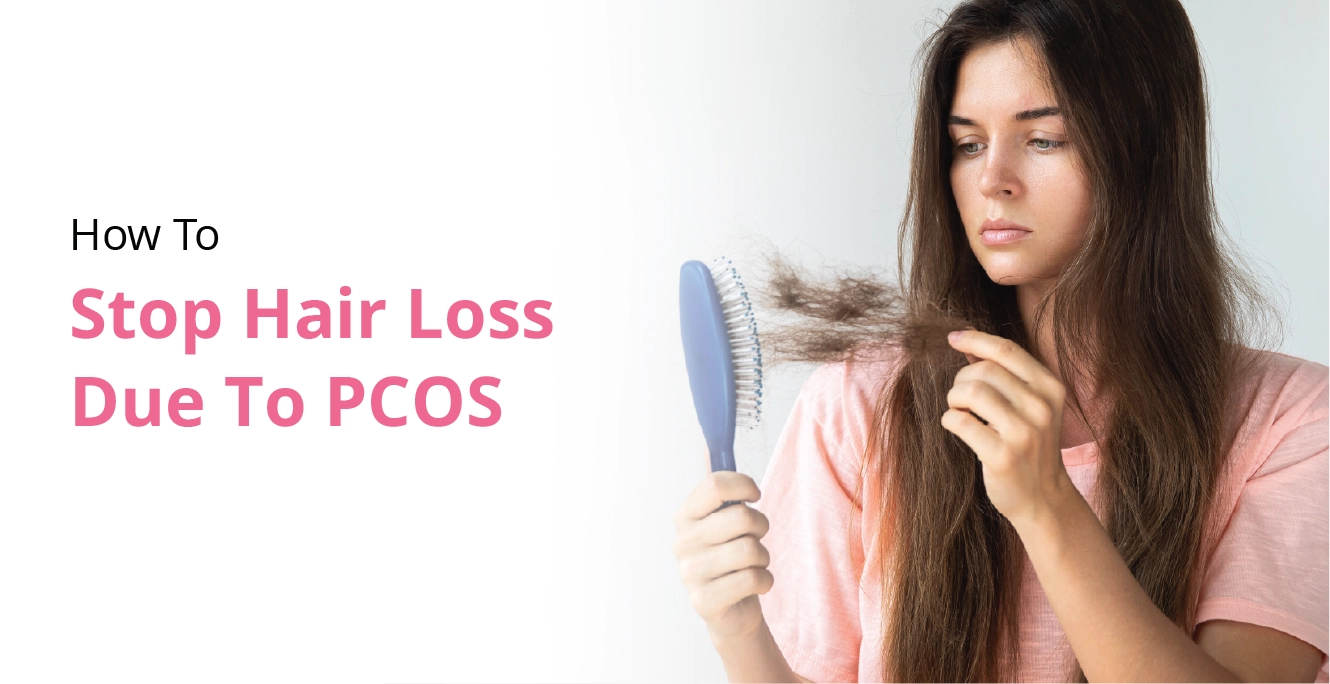
Adrenal PCOS: Causes, Symptoms, and Treatment

Table of Contents
Polycystic Ovary Syndrome (PCOS) is a common hormonal disorder that affects many women of reproductive age. Among its various types, Adrenal PCOS is often less discussed but equally important to understand. This blog highlights the causes, symptoms, and treatment options for Adrenal PCOS, providing valuable insights for those seeking to manage this condition effectively.
What is Adrenal PCOS?
Adrenal PCOS is a subtype of PCOS characterized by an overproduction of adrenal androgens, such as DHEA-S (dehydroepiandrosterone sulfate). Unlike other forms of PCOS, where the ovaries primarily produce excess androgens, in Adrenal PCOS, the adrenal glands are the main source. This type of PCOS can lead to similar symptoms as other forms but often requires a distinct approach to diagnosis and treatment.
Causes of Adrenal PCOS
The exact root cause of Adrenal PCOS is not found yet by researchers, but several factors can contribute to its development, a few of them are as follows:
- Genetics A family history of PCOS or other endocrine disorders can increase the risk of developing Adrenal PCOS.
- Stress: Chronic stress can lead to elevated levels of adrenal androgens, worsening PCOS symptoms.
- Insulin Resistance: Although less common in Adrenal PCOS than in other types, insulin resistance can still play a role.
- Hormonal Imbalances: Imbalances in the hypothalamic-pituitary-adrenal (HPA) axis can lead to overproduction of adrenal androgens.
Adrenal PCOS Symptoms
The Adrenal PCOS symptoms can overlap with those of other types of PCOS but are often more closely related to adrenal function. Some of the common adrenal PCOS symptoms include:
- Irregular Menstrual Cycles: Irregular or missed periods are one of the most common and significant adrenal PCOS symptoms.
- Hirsutism: Excessive hair growth on the face, chest, or back due to high androgen levels.
- Acne: Persistent acne, especially on the lower face like the chin and upper neck region.
- Weight Gain: Difficulty maintaining a healthy weight, although this is less pronounced than in other PCOS types.
- Fatigue: Feeling of chronic fatigue due to hormonal imbalances.
- Hair Loss: Thinning of hair, male bald spots, and hair fall are also common adrenal PCOS symptoms experienced by women affected by this form of PCOS.
Diagnosing Adrenal PCOS
Typically, diagnosis for adrenal PCOS involves a combination of medical history, physical examination, and blood tests to measure hormone levels, including DHEA-S. An ultrasound may also be used to check for ovarian cysts, although these are less common in Adrenal PCOS compared to other types of endocrine disorders.
Different Options for Adrenal PCOS Treatment
- Lifestyle Changes: Regular exercise, a balanced diet, and stress management can help reduce symptoms. Mindfulness techniques, yoga, and meditation are particularly beneficial for managing stress levels.
- Medications:
- Oral Contraceptives: Birth control pills can help regulate menstrual cycles and reduce androgen levels.
- Anti-Androgens: Medications like spironolactone can block the effects of androgens, reducing symptoms like hirsutism and acne.
- Metformin: Though primarily used for insulin resistance, metformin can also help regulate menstrual cycles in some women with Adrenal PCOS.
- Adrenal-Specific Treatments: In cases of significant adrenal overactivity, medications like glucocorticoids may be prescribed to reduce adrenal androgen production.
- Nutritional Support: Supplements such as omega-3 fatty acids, inositol, and vitamins D and B12 can support overall hormonal balance and improve symptoms.
Conclusion
Adrenal PCOS is a unique subtype of PCOS that requires targeted treatment and management strategies. Understanding its causes, recognizing the symptoms, and exploring effective treatment options can significantly improve the quality of life for those affected. If you suspect you have Adrenal PCOS, consult with an expert to receive a proper diagnosis and personalized treatment plan for effective results. With the right guidance and approach, managing Adrenal PCOS and achieving hormonal balance is possible.
Our Fertility Specialists
Related Blogs
To know more
Birla Fertility & IVF aims at transforming the future of fertility globally, through outstanding clinical outcomes, research, innovation and compassionate care.
Had an IVF Failure?
Talk to our fertility experts

 Our Centers
Our Centers


















